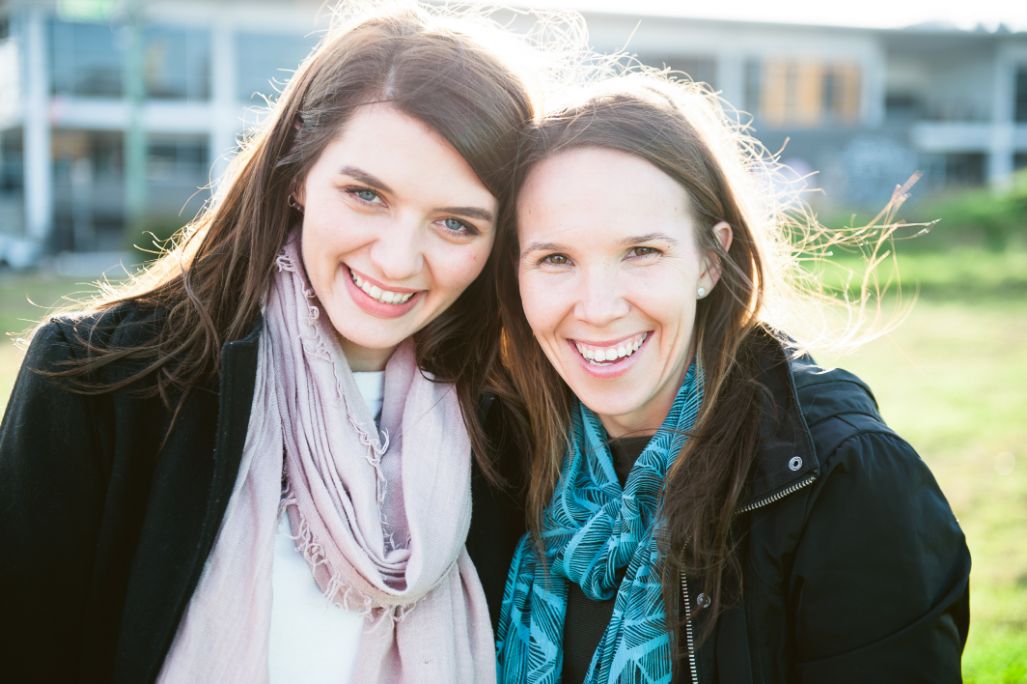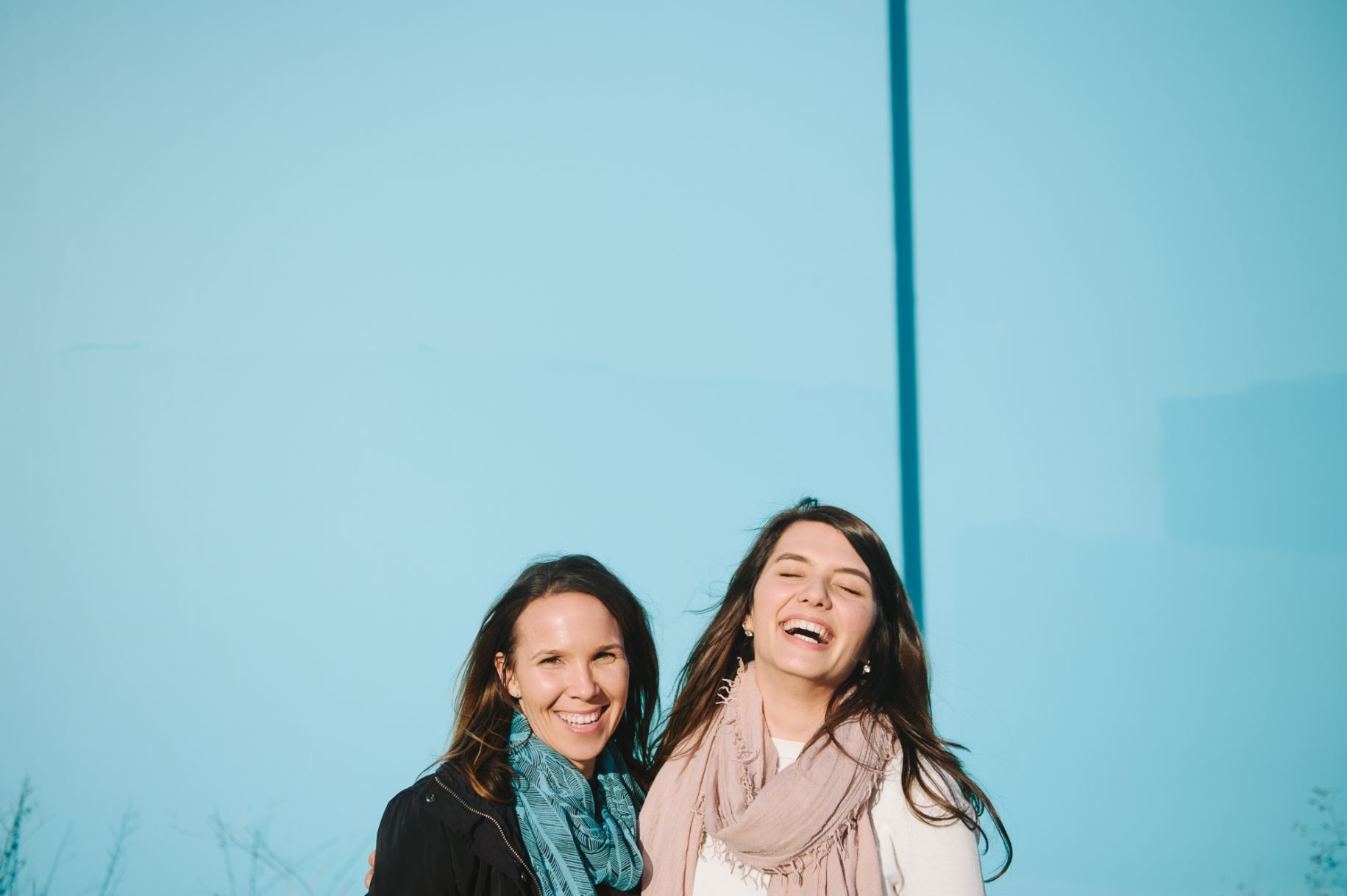Automatic language translation
Our website uses an automatic service to translate our content into different languages. These translations should be used as a guide only. See our Accessibility page for further information.

Every time I go out I see a version of the sort of mum I could have been. Those women walking along pushing their prams, with a cigarette or beer in hand. The babies not covered up properly in winter.
I don’t miss that life. If I was still with Teresa’s dad, James, I would be using and just trying to keep up the appearances of being a mum. There was something powerful about James. I know now he was harming me. In his mind he was doing me a favour. I was living on the street when we met. He believed that he saved me; that he owned me and I owed him. But James had complete control over my thinking.
The drugs stopped me from feeling. At first I would feel the intensity of it all, I’d feel super. But then I would feel numb, nothing. I would stop using and then go back to it, but when I was off them, I couldn’t function.
And then everything changed. I found out I was four months pregnant. I stopped using. I was scared my baby would be deformed. I went through this spiritual phase. I started going to church and prayed for help, and I had faith God would send help. Then all of a sudden two caseworkers, Sara and Belinda, showed up.
I remember I was home. I was pregnant, in pain and could not get comfortable. I was stressing out about my baby, and her father was giving me a hard time.
Knock knock on the door. I came out and there were the two of them.
I thought, ‘Here we go again. They have each other. They will back each other up. I am all on my own. They are going to get me. They are going to take my baby away.’
There was a moment though when I looked Sara in the eyes. Sara has these amazing eyes and a compassionate face. I said, ‘Why are there two of you? And why are you taking notes?’ She answered all my questions.
I had this overwhelming sense of surety with both of them – it was their assertiveness, their voices. They listened. They were honest and clear about why they were there. I felt I could work with them.
I trod carefully with Sara and Belinda at first, but then I started to open up. I revealed my darkest secrets; where I had been and where I wanted to go, and they heard me.
The first case plan meeting was pretty overwhelming. I didn’t expect there to be five people. I felt I was in a courtroom or the naughty corner. The only good thing was that Sara and Belinda were both there. I couldn’t keep myself together but they kept reassuring me it was all going to come good.
In those early days James was going to be part of the case plan, and I was hoping I could help him be a better parent, but he wasn’t ready – he let me down.
One time after a fight with James I went into a women’s refuge. In the refuge the situations do not seem real. It felt like it was designed to see how I coped. It was weird and left me baffled. There were so many other women doing it tough. I remember thinking, ‘how can a woman leaving domestic violence end up in a place like this?’
When I was five months pregnant and the doctor said congratulations you have a healthy baby, my heart nearly popped out of my chest. I got to a point where I thought ‘Sara and Belinda are like the baby angels. They come in to make sure all the babies are safe.’
I had been struggling for so long fighting for my sanity to prove I am not a basket case. I was critical of myself. I never felt I fitted in. I felt I was judged and spoken down to and I was not thinking straight. I have always known I was just as normal as everyone else. I haven’t totally overcome it, but I’m feeling so much more human. I am stronger and can just live and not have my day ruined from getting cursed at all the time. Instead I look forward to the days of hearing giggles and little baby noises.
It all started with Sara. I had to do my bit, but now I am in a good place. I am still learning. I am still healing and working on my weaknesses, but my world has now come to a calm place with the birth of my calm baby.
This baby saved me. When your love is there, being a mum is easy. You love doing it and you want the best for them.
We had a lot of history with Deborah - serious drug use, homelessness, two children being raised by extended family, she’d been hurt by violence; and there were big questions about her mental health. When I started working with Deborah there was a no contact AVO protecting her from James. But he was always breeching it, calling her and sending her text messages, telling her she was under surveillance. Deborah was about to be evicted from the crisis housing she was staying in. I felt overwhelmed with worry for this woman and her baby.
When you are about to become homeless it would be easy to miss your antenatal appointments. Not Deborah - she was on top of it all. It made me realise just how hard she was working for this baby.
She agreed to drug screens, getting mental health support and family violence counselling. She needed help – the violence she lived with had been so awful. I wanted to help her understand why it would harm her baby but it was so important to do it in a way that didn’t make her feel blamed.
Things were going well until the case plan meeting. There was this long table and Deborah walked in to us all sitting down, Belinda, me, our managers and a student. I saw her distress. Belinda and I both realised straight away we had got it wrong, and it was too hard for Deborah meeting in such a formal way. The set up was very clinical and so oppositional. We both got up and moved. I got her some water.
I asked Deborah what she would do if James turned up at her door. She said she would ask him to go. I said we would want her to call the police. She said no. Afterwards I read Deborah’s criminal history and discovered that on the many times police were called for domestic violence she had been scheduled under the mental health act. When police got there she was still really upset and he would be calm. James would tell police she was crazy and she had assaulted him. This happened about five times. It was a hard lesson for me, but an important one. Without taking the time to understand Deborah’s story and experiences, I couldn’t help her build safety that would last.
After Deborah had her baby, she went straight into being a protective mum. She was staying at a place which helped her with being a mum and was doing great. She didn’t need us anymore. It was always about her taking little steps. She set the boundaries. She had the control.
Deborah is very well read and articulate. When we first met she seemed to have no positive relationships, even with the crisis housing she was in. She was pregnant, perhaps withdrawing from drugs, and felt really let down by the eviction. We validated what she was feeling and just included her every step of the way.
I went on leave straight after our first case planning meeting. It didn’t go so well for a while after that. I had arranged for Deborah to work with another caseworker, but she just withdrew. When I came back Deborah would not take my calls. I decided to give her a bit of space. We needed to give her back some control, and let her make as many choices as she could. Stepping back for that short time worked. Deborah stepped forward and we got back to the job of ensuring she could take her baby home.
I remember the day Deborah came home from the hospital. I went to visit and brought some tea. She showed off bub and was full of love and happiness. Then Sara showed up with this pram. It was the only thing she needed.
The baby has been Deborah’s new beginning. She would often say, ‘The baby is my second chance’.

Director, Practice Quality and Clinical Support
As I read this story I am reminded of the importance of getting that first meeting right. Deborah brings to light what it is like to be on the other end of that knock on the door - the fear, the belief that we are only there to take children, that it's 'us against them.' It is only when she got to see some compassion beaming back at her during that first visit that she started to think Sara and Belinda might just be there to help.
The power of relationships is evident when Deborah had to walk into a meeting room filled with power and authority. Sara and Belinda recognised Deborah's discomfort straight away and tried to make the meeting more relaxed, but they couldn't undo what had already been done. Deborah retreated. It would have been easy to interpret and label this as resistance but they sat patiently and let Deborah come back in her own time. They trusted that the foundation of the relationship was strong enough - that Deborah would come back to them when she was ready. And she did. Allowing Deborah to be in the driving seat was key to all that they did.
Deborah's pregnancy was the opportunity for change and everyone harnessed this. Sara and Belinda got in early and in doing so gave Deborah the time she needed to create the life she wanted. How lovely it is to see Deborah being the mum she wants to be. I have no doubt that she would have got there on her own, but how much easier was it for her with Sara and Belinda by her side, supporting and encouraging her through honest conversations sprinkled with big doses of compassion and care.
16 May 2023